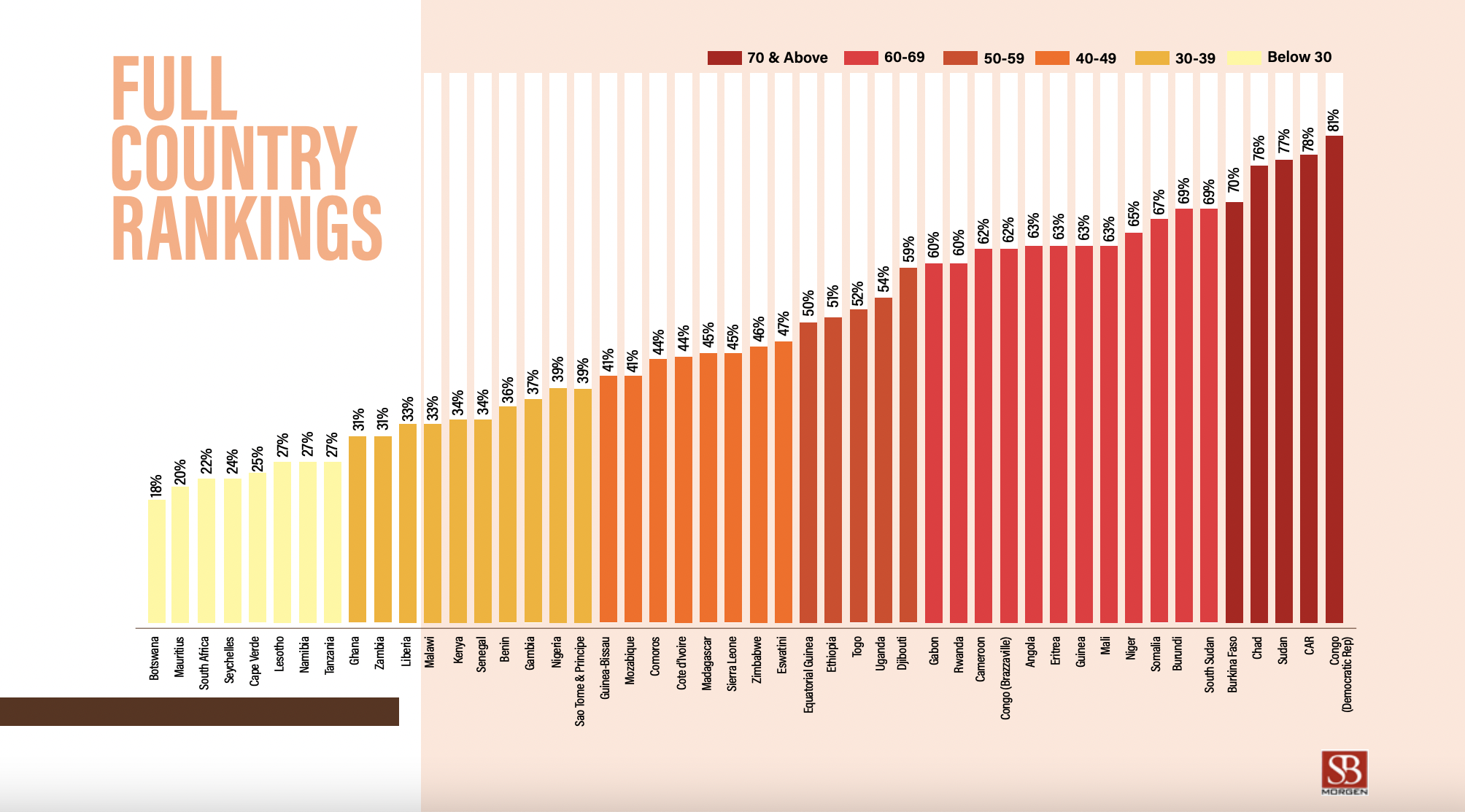SBM Intelligence, a leading research and risk consultancy firm in Nigeria, has announced the release of the “Africa Country Instability Risk Index” (ACIRI) which assesses the political stability risks in 47 African countries.
One of the report’s key features is the innovative framework for assessing the risk of coups d’état. Given that 2023 has been the year when the bite of longstanding state fragility has come to the fore – whether in African government takeovers or the renewal of hostilities in the Middle East, the ACIRI is a timely tool that indicates a country’s vulnerability to political instability.
The ACIRI’s framework uses indices such as ethnic tensions, a country’s history of coups, dominant ethnic groups, economic concentration, ageing leaders, and the nature of their economies (mono-product, bi-product or multi-product), to develop a stability ranking for each country which is further divided into the ‘Red Watch, Warning, Critical, Vulnerable, Stable and Safe’ categories.
The macro risk indicators are grouped into four categories: Leadership and Governance (with a weighting of 40%), Economy (30%), Geopolitics (15%) and History (15%), with each indicator subdivided into several measures for an overall score of 100%. A higher score delineates a higher level of political risk to business.
Particularly, Nigeria ranked 60% in the “Economy” macro risk indicator category, indicative of the country’s economic challenges. Sub-indicators in the “Economy” category include GDP growth, product/sector dominance, regulatory maturity, food security, poverty rate, debt sustainability, and currency volatility.
The ACIRI is designed to serve a wide range of stakeholders. For governments, it serves as an invaluable tool for identifying and mitigating political instability risks. The framework for assessing the risk of coup aid in developing early warning systems and contingency plans, ultimately fostering informed conflict-resolution measures.
Transnational corporations can leverage the ACIRI to identify countries with high political instability risk and formulate contingency plans to safeguard their investments. This enables corporations to better comprehend the secondary influences at play and explore opportunities for partnerships with governments and other businesses.
Non-governmental organisations, think tanks, and development agencies will find the ACIRI crucial in their efforts to promote political stability and economic development in West Africa. Considering that instability in one area can have ripple effects, influencing regional stability and potentially leading to wider conflicts or spillover effects, the ACIRI provides a comprehensive breakdown of each African region, offering insights into the unique challenges and opportunities present.
The ACIRI also spotlights Central Africa’s turbulent history marked by coups and civil wars while also highlighting its unique security threats which include terrorism and armed conflicts that hinder development. The fact that three of the countries in this region – the Democratic Republic of Congo, Central African Republic and Chad are among the top five riskiest countries in the continent drives home the point.
Furthermore, the ACIRI highlights East Africa’s strategic location for trade, its fast-growing economies as well as the ethnic and religious tensions it faces. It also discusses the economic inequality, political instability and abundant natural resources available in Southern Africa.
In addition to its rich insights borne out of rigorous research and analysis, the ACIRI is presented in a clear and accessible style, thus making it a valuable resource to guide the actions and decisions of multiple stakeholders in Sub-Saharan Africa.
To access the ACIRI or learn more about SBM Intelligence, visit https://www.sbmintel.com/2023/10/the-african-country-instability-risk-report-aciri/
For comments and enquiries, email us at info@sbmintel.com.














